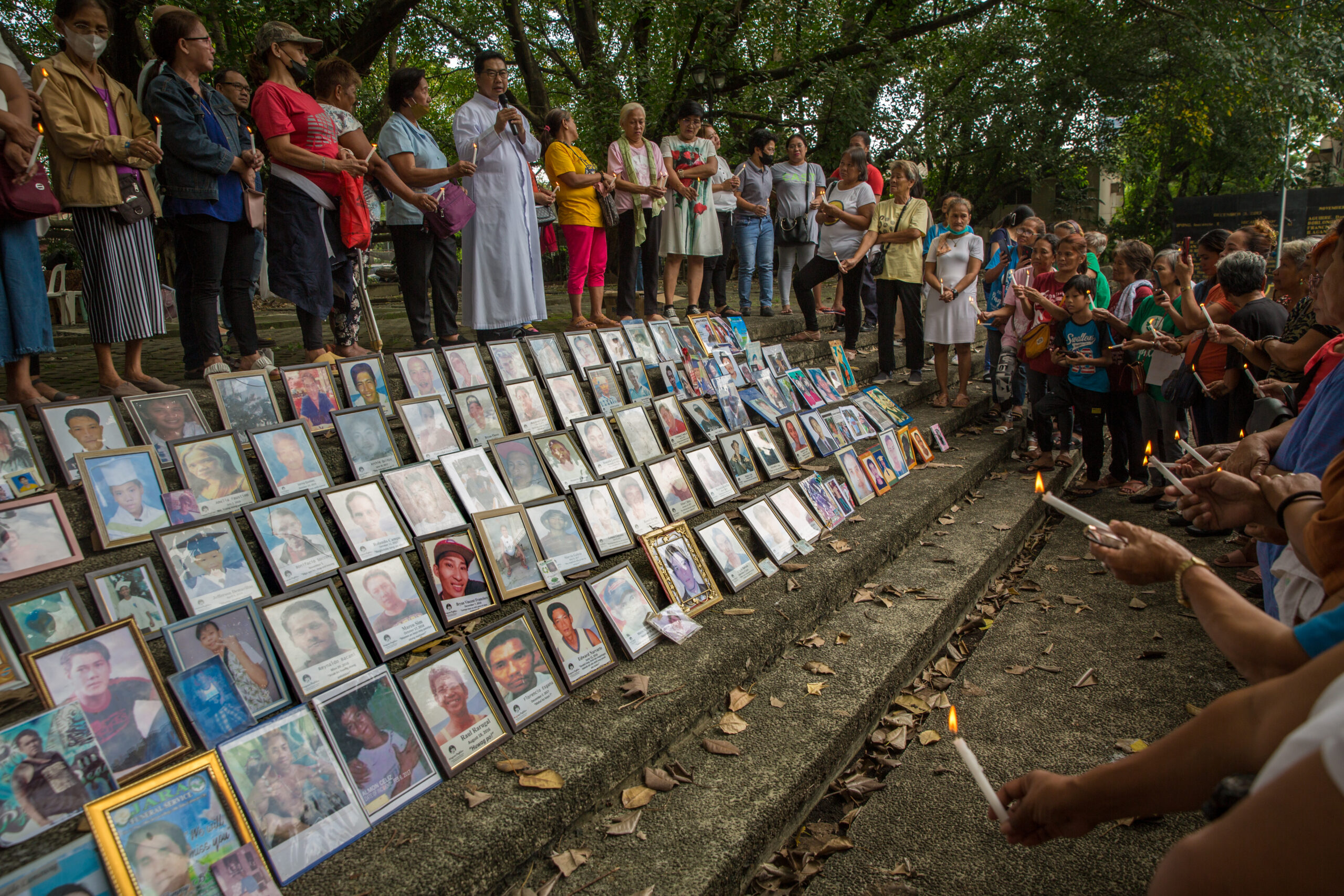The Philippine Department of Justice (DOJ) has set up a new task force to investigate extrajudicial killings under the former Duterte administration’s so-called “war on drugs.” On November 4, 2024, Justice Secretary Jesus Crispin Remulla signed Department Order No. 778, which establishes the task force headed by Assistant Public Prosecutor Shrub Abugan in the Office of the Secretary of Justice Prosecution Staff (OSJPS).
The aim of the task force is to initiate investigations into the approximately 6,000 cases of extrajudicial killings that took place in the context of the anti-drug campaign between 2016 and 2022 according to government statistics, as well as to build cases and, if necessary, bring charges against perpetrators. The Philippine Commission on Human Rights estimated at least 27,000 cases of extrajudicial killings in the context of the “war on drugs” between 2016 and 2018, including killings by state security forces and unidentified perpetrators.
The task force is also investigating possible violations of the National Humanitarian Law (Republic Act No. 9851) of 2009 by the former Duterte administration. Justice Minister Remulla explained that the task force’s investigations could possibly overlap with those of the International Criminal Court (ICC). The ICC is investigating alleged crimes against humanity in the “war on drugs” between 2011 and 2019 during Rodrigo Duterte’s time as mayor and vice mayor as well as president of the Philippines.
According to legal expert Soiman Santos Jr., an investigation at the national level is just as important, even if this could result in a suspension of the ICC investigation. Nevertheless, the investigation is dependent on the government’s willingness to do so, i.e. a refusal by those affected to cooperate with the DOJ could also justify this. In addition, a national investigation into crimes against humanity could also include the years between March 17, 2019, and June 30, 2022.
Former Senator Leila de Lima also explained that the ICC can only prosecute the high-ranking masterminds in the “war on drugs,” but not the perpetrators at the middle and lower levels of responsibility. Civil society groups such as Karapatan reject the DOJ’s efforts, as they would delay justice for the victims’ families.
Photo © Raffy Lerma

